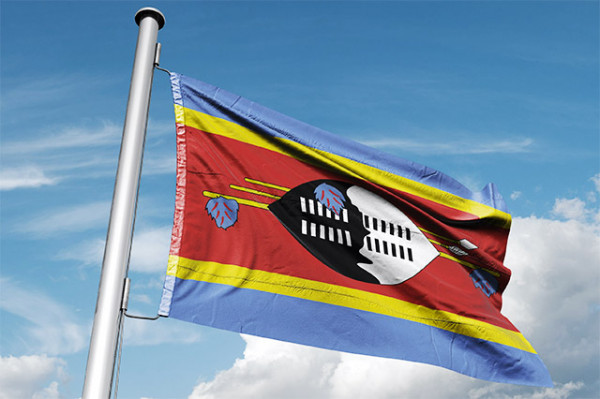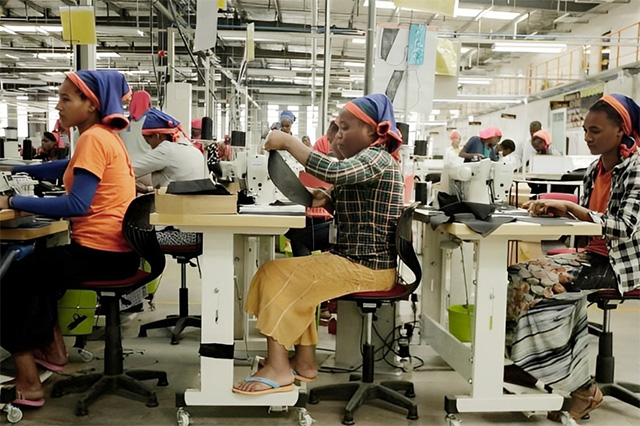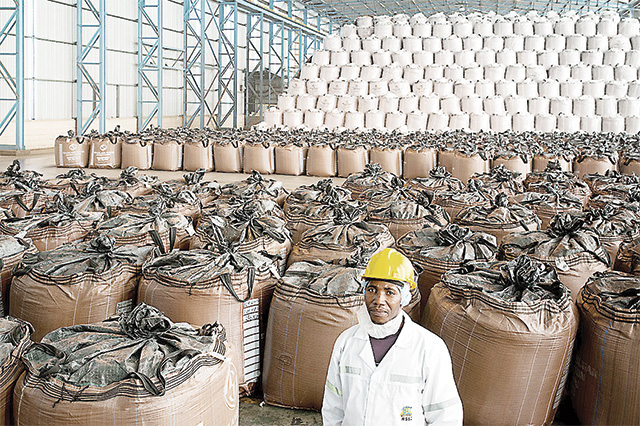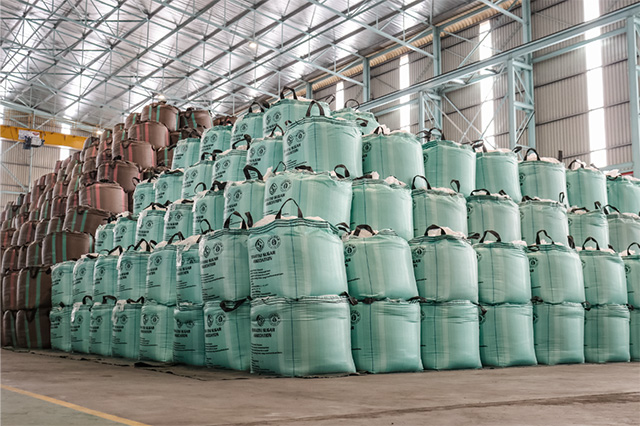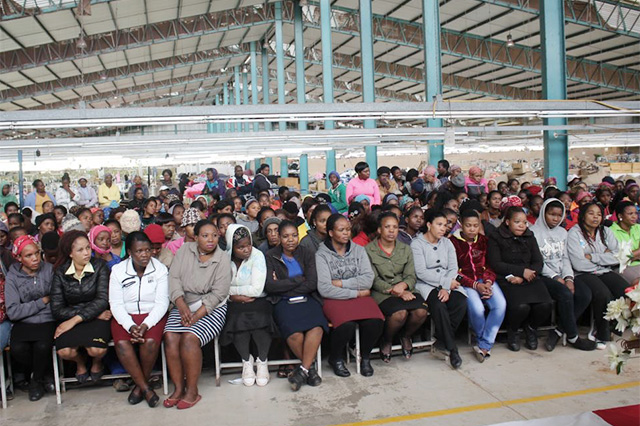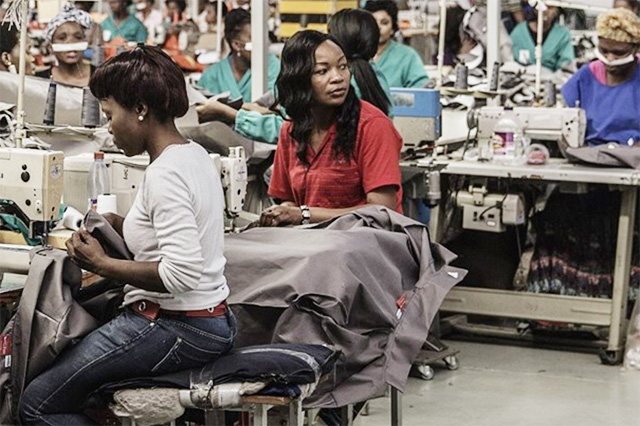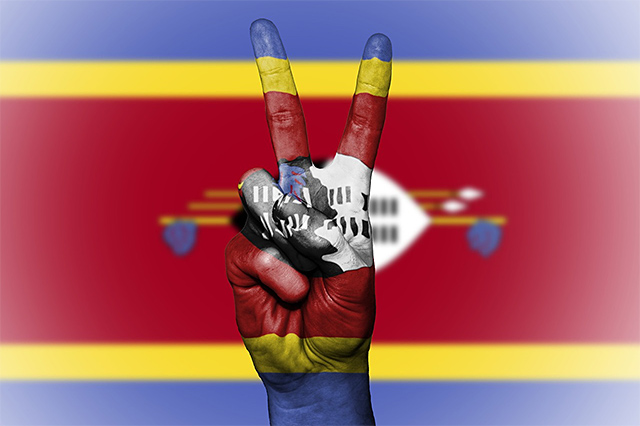Swaziland: 'One month to AGOA review cycle'
Swaziland has one month to work on the remaining AGOA benchmarks as this year’s AGOA review cycle will begin in June until September.
AGOA is the African Growth and Opportunity Act, a United States Trade Act enacted on May 18, 2000 as Public Law 106 of the 200th Congress.
The legislation significantly enhances market access to the US for qualifying Sub-Saharan African (SSA) countries.
While working on the remaining benchmarks, which are amendments to the Public Order Act and Suppression of Terrorism Act which are currently being debated in parliament; the country has support from the United States of America Ambassador to Swaziland Lisa Peterson who pledged to “help Swaziland meet the AGOA benchmark” when she arrived in the country in January.
She had further revealed that she was looking forward to working with the government and people of Swaziland and work in partnership with government. The time frame was revealed by the US Embassy Public Affairs Officer Ruth Newman who stated that Swaziland had only met two and a half of the five set benchmarks in order to reclaim eligibility to AGOA.
“This year’s normal review cycle for all countries in Africa will begin in June and conclude around September,” she said. She pointed out the possibility of an out of cycle review in the event the country met the benchmarks later in the year.
She said it was not at their discretion to asses and determine the country’s eligibility back to AGOA as that was the responsibility of multiple agencies in Washington. She said, “Once all five of the benchmarks are determined to have been met, the embassy would convey this information to our headquarters in Washington.
Multiple agencies in Washington, not only the Department of State, would assess Swaziland’s progress on the benchmarks and make a determination of eligibility to participate in the preferential trade program under AGOA.” Worth mentioning is that the loss of the AGOA eligibility status resulted to the loss of thousands of jobs, mainly in the textile industry as they could no longer have market access to the US with qualifying Sub-Saharan African countries.
Half of five AGOA conditions met so far - US
Despite the efforts being made by the country to conform to the five benchmarks set for admission back to the African Growth and Opportunity Act (AGOA), the United States Embassy has said they were considering that only two and a half of the five benchmarks had been met so far.
This was said by the United States of America Embassy Public Affairs Officer Ruth Newman. She, this past week, revealed that they had been closely following government’s efforts to work towards meeting the five AGOA benchmarks.
But she said only two and a half of the benchmarks had been met at the moment.
“At this point we consider that two and a half of the benchmarks have been met,” said Newman.
It is now exactly 17 months since the country lost its eligibility to AGOA on January 1, 2015. US President Barack Obama withdrew the country’s eligibility because of failure to fully meet these benchmarks.
Newman said two of the benchmarks were the amendments to the Industrial Relations Act to allow for the registration of federations and to conform to International Labour Organisation (ILO) Convention No. 87 on the civil and criminal liability of trade union leaders.
She said although these were completed in 2014, the actual registration of federations did not take place until 2015.
The concern with the Industrial Relations Act was that it did not provide for the registration of labour federations and therefore, amendments had to be passed fully to allow for labour unions to work collectively in order to improve workers’ rights.
It was also pointed out that there was a need to amend Sections 40 and 97 of the Industrial Relations Act.
This was because civil and criminal liabilities caused concern since they sought to punish labour leaders for the actions of people affiliated to their unions.
This was said to be a violation of international law to hold people accountable for actions they themselves did not commit.
Rather, it was highlighted that there were many models of acceptable languages to control security threats, but these pieces of legislations in their current form were overly broad.
Moreover, Newman said they were still evaluating the third benchmark, which is the establishment of a Code of Good Practice for Industrial and Protest Action (the Code), as published in Legal Notice No. 202 of 2015 on December 1, 2015.
She said the publication and dissemination of the Code was an important first step, but it remained to be seen how the Code was being implemented by the police, thus explaining the ‘half’.
Newman also said, “We will continue to observe this until it is clear that the police have been properly trained and are using the Code to legally regulate protest actions and correctly investigate any allegations or incidents of abuse.”
Finally, the last two benchmarks are the amendments to the Public Order Act and Suppression of Terrorism Act.
Prior, the Public Order Act was supposed to be brought in line with the ILO standards, while the Suppression of Terrorism Act was expected to narrow the scope of the definition of ‘terrorist act,’ bringing it in line with international practice.
In light of these two, Newman said it was critical to see in the final versions of the documents that will emerge from Parliament that, “the freedoms of association, assembly and expression are being upheld in accordance with international norms.”
This will be after the two Acts are tabled in Parliaments, where they were currently being considered. It is worth noting that it has previously been said that these two Acts were of concern in the sense that it remained a wonder whether or not citizens and workers would be allowed to have peaceful public gatherings without interference by the police even if federations were registered. This was particularly because the amendments of the two were said to allow for a processes of transparency and objectivity in deciding how people can come together for public gatherings.
This was because at the time of the concerns were communicated; the law was interpreted as saying any public gathering could be stopped, as it has happened in the past.
Hence, such interpretations were said to negatively impact the rights of labour unions and members of the public to gather to hold May Day celebrations and other meetings to talk about conditions of employment and other issues which affect the economy broadly.


